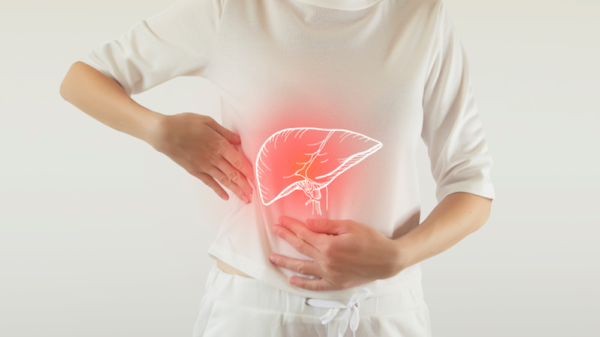Hepatitis Cirrhosis: Is there a difference between hepatitis and liver cirrhosis?
Hepatitis is a relatively common disease with 1% of the US population infected with Hepatitis C. Sometimes hepatitis is connected to other health conditions like liver disease. So it might be unclear whether there’s a clear difference between cirrhosis of the liver and Hepatitis A, B, or C. If you’ve been diagnosed with cirrhosis it’s important to know about the infectious disease. In fact, liver cirrhosis can have several complications in the late stages, which can make it tougher to deal with serious disease. It’s critical to separate fact from fiction.
Hepatitis A, B, and C are the most well-known types of disease. They can be spread in different ways including saliva, blood, and sexual activity. So it’s important to know about them and especially if you have health conditions like liver disease. It’s quite common for infections to lead to more serious diseases like liver diseases and even cirrhosis. So it’s important to know the basics of hepatitis. That includes the symptoms, causes, treatments, and prevention. This can help to deal with the condition and especially if it’s connected to other health conditions like liver disease and others.
What Exactly Is Hepatitis?
There are 5 kinds of Hepatitis including Hep A/B/D/E. Each kind has symptoms that are a little different. The good news is that most of them can also be treated effectively. The main difference is Hepatitis C that might cause lifelong sickness and liver damage.
Hepatitis A
This type is often passed on through saliva including sharing food/water with a person infected with Hep A. You can also get hepatitis A through bodily fluids or sexual contact. You can also get it through other body fluids like blood/urine.
Most people who get Hep A have a full recovery. However, sometimes the infection can cause serious illness. Hep A also causes liver inflammation.
Hepa B
It is transmitted through a person’s body fluids or through sexual activity. This is a serious disease and the virus stays in a person’s system for a lifetime. Hep B causes liver inflammation and can result in long-term liver damage.
Since there’s no cure for Hep B most kids now get a vaccination for Hep B. This provides protection from the disease.
Hepa C
This is the most serious kind of hepatitis. It causes long-term sickness and major liver damage. This is transmitted through blood. This disease is closely related to immune system diseases that cause the system to attack healthy cells.
This causes more damage to the liver and exhaustion. This is a very serious disease, although it’s possible for people’s conditions to improve. Good ways to avoid this disease is to avoid sharing needles and practicing safe sex.
All kinds of hepatitis are very serious and can affect a person’s daily life. For example, if a person has Hep A they might have to miss months of work/school. Meanwhile, Hep C could cause liver damage. It’s important to avoid other people’s body fluids when possible. They should also avoid sharing food.
When visiting developing countries take some precautions including not drinking tap water. You should also practice safe sex.
What is Hepatitis Cirrhosis?
Hepatitis C is relatively common and affects 1% of the USA population, for example. One possible problem is that many people don’t know that they have a serious disease. HCV can do liver damage over the years. In fact, nearly 25% of all people with HCV will get liver cirrhosis. In fact, it’s the top cause of liver cancer.
The human liver has important functions like making nutrients and blood detox. Various things can damage the liver including heavy alcohol drinking, hepatitis, and parasites.
As time passes liver inflammation can cause various issues like major scarring (cirrhosis). There are 4 stages of this condition and it can cause various health issues like liver failure and liver cancer.
The good news is under one-quarter of HCV patients will get cirrhosis. However, there are various factors that can boost your cirrhosis risk including alcohol use, HCV virus, and high iron in the blood.
If you have liver cirrhosis there are four different stages. The first stage doesn’t include complications. However, Stages 2, 3, 4 includes more tissue scarring and can result in different complications including diabetes, gum disease, and medication processing.
During the early stages, you can use prescription medicines to treat cirrhosis. They might slow down the speed of liver disease/failure. However, if the disease becomes more advanced then treatment becomes tougher due to various complications including anemia (low red blood cells), ascites (fluid buildup), and HE (confusion, lack of focus).
Due to these complications, it can be tougher to use certain medicines. As a result, the only option might be liver transplant. However, this can cost over $500,000. You also might not qualify for a transplant if your liver disease isn’t very late-stage.
Hep C patients who get a liver transplant typically survive for 5+ years. However, it’s also common for the Hep C infection to return.
Top Tips for Preventing Hepatitis B/C
As the old saying goes, “Prevention is better than cure.” Nothing is 100% so there’s always a chance you could get Hep A, B, or C. However, the good news is you can take some basic steps to help lower your chance of getting this infection.
Another key point is that there are various other infections and factors that can affect your chance of getting Hep A/B/C. It’s important to learn about those factors to help reduce your risk of Hepatitis. That, in turn, can also lower your risk of liver disease and liver cirrhosis.
1. HEPATITIS A
There are various ways you can help avoid getting Hep A. First, make sure to wash your hands at least 10x daily. You should also wash them after you’ve contacted another person’s body fluids. Use warm water, wash up to your wrists, and wash your hands as long as it takes to sing the ABC song.
You should also avoid unclear food/water. This includes raw shellfish and fruit washed with dirty water. Be cautious about buying food from “street vendors” and peel all fruits/vegetables.
If you’re traveling then avoid brushing your teeth with tap water. Make sure to only use (carbonated) bottled water.
2. HEPATITIS B
If you want to avoid getting Hep A you should get a vaccine. This helps to boost the immune system so it can fight off the virus after getting exposed to it. There are usually 3 doses during a half-year period.
3. HEPATITIS C
There are several tests that can check if you have Hep C. If the test’s result is positive then there’s another test to determine if you have a blood infection with the virus. The test will also determine the amount of the virus that’s in the blood.
There’s no vaccine for Hepatitis C. Make sure to avoid unprotected sex and needle sharing after learning about the causes of hepatitis cirrhosis.























